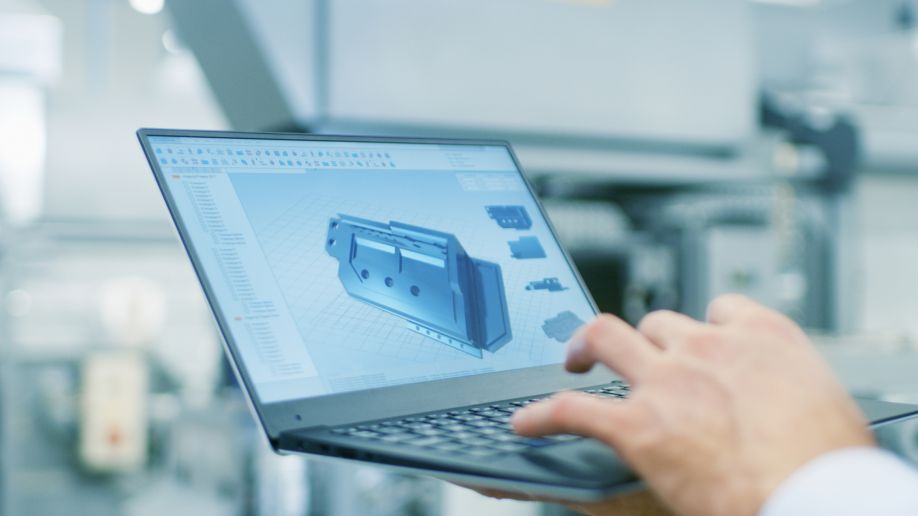Reasons Manufacturers Should Use CAD Automation

Designers have used CAD for decades, and the next step involves automation, which leaves room for CAD drawings to become even more beneficial for a manufacturer. Automating this process encapsulates things like cloud connectivity, industry 4.0 developments, and artificial intelligence.
CAD automation involves using technology, machine learning, and tools to automate pesky automation tasks designers have to deal with. Here are some of the various ways CAD automation can benefit the manufacturing business.
1. Figure Out What Is Possible
Manufacturers may deal with clients who have very specific requests. Even though designing products is made easier with CAD technology, good designs take time. And with a client who is pushing the boundaries of what manufacturers think is possible, it can be incredibly frustrating to come off a long call only to see their new requests are not feasible.
Without CAD automation, a designer or sales team might promise a client something impossible. Then, they’ll be left scrambling to think of an alternative that will please the client while not meeting their complete request.
Automating file exchanges early clarifies the possibilities for a team and its clients, leaving everyone better prepared for the collaboration ahead.
2. Encourage Innovation and Keep Room for the Engineer as the Artist
With CAD automation, a sales team can deal with meetings and money while the engineers stay focused on innovation and development. On the opposite side, AI-generated CAD designs could show designers new ways to create items that already exist, opening the door for unexpected innovation.
AI and automation will not replace the engineer as the artist but will supplement the engineer’s artistic endeavors by helping them realize the optimal shapes for reaching engineering goals. Creativity is an essential part of manufacturing design. Some people think AI and automation do not leave room for creativity.
However, AI actually encourages creativity by introducing designers to never-before-seen shapes and geometries – which might soon become reality with advances in 3D printing. It’s like having a new teammate whose job is to complete projects faster in a way they’ve never been done before.
3. Improve Communication
Manufacturers must have great communication at every level, from sales reps to designers and engineers. Automated design can improve communication between everyone through the organization of documentation.
Documentation is a manufacturer’s best friend. It shows them past projects and how those projects worked, areas for improvement, and past CAD drawings they can use to meet new project needs.
CAD automation can automatically organize electronic documentation in a way that is intuitive and easily accessible. Designers will be able to find relevant documentation to provide the proof they need to communicate with clients, suppliers, and anyone else involved in the creation of new products. This will improve communications and make the design process smoother.
4. Save Time
AI is a field that uses computers to complete tasks usually done only by humans. There are unlimited possibilities for AI in every industry, from e-commerce and food service to health care.
AI in manufacturing and creating CAD drawings is an area with potential that is still largely untapped, but CAD innovation is right around the corner. With AI and CAD automation, engineers and designers can save time by skipping time-consuming steps of the design process. This helps designs reach completion faster and more efficiently.
For example, CAD software could ask designers questions before building a preliminary design, such as:
- What materials are needed for the project?
- How much time is needed to complete the project?
- What geometry is involved in the design?
- Will this piece connect with others as part of an assembly?
Once designers answer these questions, AI CAD automation software will generate some relevant design options, which can save designers valuable time during their process.
While this type of technology is great for simulation, a human is still involved in validating and enhancing the simulations provided by the software.
5. Accelerate Sales and Simplify the Supply Chain
Creating CAD drawings manually takes a lot of time and costly mistakes can occur, which can create problems because speed often plays a role in making sales and winning contracts.
CAD automation can help manufacturers avoid these mistakes so they do not experience delays and product returns. With automation, designers can skip time-consuming steps of the design process, thus completing projects faster and accelerating sales.
Additionally, with CAD automation, companies can simplify their complicated supply chain processes. For example, the engineers at Jonathan Engineered Solutions worked alongside another company that specializes in creating automated equipment, supplying the entire mechanical subassembly for the company’s newest automated machinery endeavor.
When JES engineers mailed their designs back to the company for testing, the company was able to insert the design directly into their CAD model assembly to verify its effectiveness. Because the company had upper-level CAD automation, they were able to work fully alongside another company to complete the assembly of parts for their new design, simplifying a once-complicated supply chain.
6. Improve Accuracy
Accurate designs are an essential part of making sales and creating connections with customers as a manufacturer. Inaccurate designs can derail customer relationships, put projects on pause, and discourage engineers, designers, and sales reps.
With CAD automation, designers and engineers can improve the accuracy of designs and produce drawings with increased confidence. Plus, an inventory of successful designs – which they can store in the cloud – gives newer designers the ability to engage with more customers successfully.
One example of how CAD automation can improve accuracy is with AutoCAD 2022’s new Count feature. The feature allows designers to quickly count the instances of objects and blocks of geometric shapes in a design. With this technology, engineers and designers can better order the correct quantities and avoid miscounting parts.
How Will You Add CAD Automation?
Creating CAD drawings helps manufacturing clients visualize their product requests. The time-consuming nature of the design process can make creating these drawings tedious. Sometimes CAD drawings come out perfectly the first time, but manufacturers often have to deal with a client altering their request, noticing a design they promised isn’t feasible, finding inaccuracies that pause the manufacturing process, and more.
Automation can help them avoid these frustrating and costly mistakes. To create a more thorough and accurate manufacturing process, teams should invest in automation. They’ll enjoy a better work environment and a better relationship with clients and potential customers.
Comments (0)
This post does not have any comments. Be the first to leave a comment below.
Featured Product

